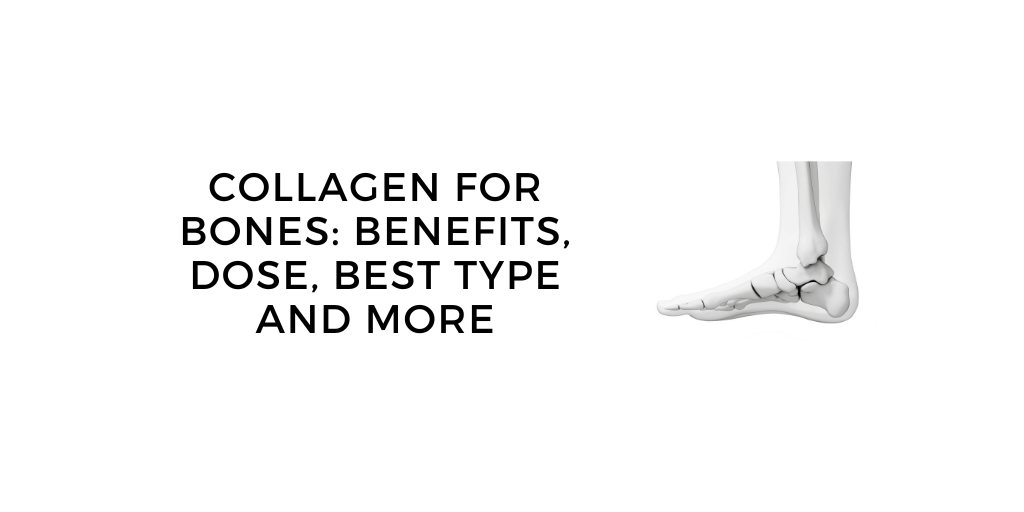
Collagen for Bones: Benefits, Types, Sources, Timing, Dosage and More
Benefits of Collagen for Bones
As you age, your bones can become more fragile and susceptible to injury. One slip or fall can cause massive health issues. So you must do what you can to keep your bones strong and resilient.
Collagen is a protein that plays an important role in bone health by reducing bone breakdown and increasing mineral density.
The tricky thing is that there are many different types of collagen, and it can be confusing to know which one is best for bone health. Additionally, many supplements are not regulated by the FDA, so it's important to choose a reputable brand.
This guide gives you everything you need to know about using collagen for bones, including the different types of collagen, sources of collagen, timing and dosage recommendations.
Before we being, you should know that the best whole food source is a high protein bone broth like the one from Bluebird Provisions. You get bone building amino acids plus extra nutrition from potassium and magnesium.
Let's get into it!
How Collagen Affects Bone Health
Collagen affects bone health by providing structure and integrity to the bone matrix, which is made up of collagen fibers. The structure it provides can help resisting fractures and maintaining healthy bones for the rest of your life.
I'll explain below how it is used to increase bone mineral density in those suffering from osteoporosis.

Should I take collagen for my bones?
If you're concerned about your bone health then you should take collagen regularly. It is shown to increase bone mineral density, strength and reduce the risk of osteoporosis.
In fact, one 12 month study in women showed an increase in bone strength and formation from the collagen group taking 5 g daily (1).
Another found an increase in bone mineral density up to 7% vs. placebo group in 66 postmenopausal women after taking 5 grams of collagen for 12 months (2). I'll explain how the mechanisms work later in this article, but the results make it worth trying.
Can collagen rebuild bone density?
Yes, collagen can rebuild bone density because of its ability to provide structure and integrity to bones as they reform and grow. Your bones are constantly turning over new collagen, so taking 5 g per day for a year can help increase the rate of turnover which will increase bone density and decrease likelihood of stress fractures.
Health Benefits of Collagen For Bones
The health benefits of collagen for bones are maintaining bone mineral density, strength, reducing breakdown associated with osteoporosis, improving joint health and building new connective tissue around your tendons and ligaments.
This seems like a lot, but we will go through each below.
1. Increases Bone Mineral Density and Metabolism
You know by now that collagen is a type of protein found in your bones, skin, connective tissues, organs and even your eyes. The cool thing is the role in increasing bone mineral density and strength.
But how does it do this? Since it's a sinewy protein, it provides structure to bones. One study showed that it taking 5 g collagen for one year increased bone mineral density and prevented degradation (1).

You don't need a fancy collagen supplement to get 5 g per day. You can get this by eating animal skin and drinking bone broth (10 g per cup).
That being said, if you insist on a powder, read my guide to the best collagen powders.
I'll mention briefly that bones need loading in order to grow and maintain strength. Complete rest is only needed for fractures. Anything else needs to be loaded through movement and exercise to stimulate growth and healing.
2. Reduce Bone Breakdown and Osteoporosis
Collagen also helps to decrease the rate of bone breakdown associated with osteoporosis.
By consuming collagen peptides, our bones are able to maintain their strength and density while avoiding the development of osteoporosis. Also, one study showed that collagen can help reduce fractures and speed up healing from breaks in those who already suffer from osteoporosis (2).
Learn more about the unique health benefits of collagen peptides.
3. Improves Joint health and Reduces Symptoms of Osteoarthritis
Collagen helps to build up new cartilage in your knees, hips, hands, neck, back and feet. This process lubricates your joints to provide pain relief over time.
I can't emphasize enough that it takes time. Most studies are 2-6 months. In my experience, it may take 6-12 months to really get the benefits.
One study even found that type 2 collagen (from chicken bone broth) helped to reduce pain and inflammation associated with osteoarthritis pain in knees (3).
I used bone broth to heal a nasty stress fracture in my foot. Now I am back to running ultramarathons.
4. Supports Connective Tissue, Ligaments and Tendons
Another unique benefit for bone health is how collagen can heal your tendons and ligaments. You may think these are not important to bone health, so let me explain.
Our bones are attached to tendons, fascia and ligaments. You need strong attachments for your bones to function properly. There's some interesting studies that using 15 g of gelatin (similar to collagen) plus 50 mg vitamin C to repair damaged tendons or tendonitis.
You have to take the gelatin and vitamin C 30-60 minutes before exercise that loads your damaged bones or tendons. By 'loads' I mean an exercise or movement that targets the injured area.
For example, if you are rehabbing an achilles tendon then you would do calf raises. (4). The timing is crucial as the exercises are crucial to moving the collagen from your gut to your bones and tendons.
Why Vitamin C? Vitamin C is known to stimulate collagen synthesis, so it is always great to include in your diet if you’re recovering from injury (5). If you have a question about this protocol, leave a comment.
Some people swear that collagen helps with hair growth, while other do not.
Collagen Food Supplement Recommendations
The best collagen food supplement is a high protein and low sodium bone broth. But you can't just choose any product from the store on Amazon. You need one with at least 12 g protein per serving with less than 180 mg sodium.
From here you want to look for one sourced from animals in the USA or Canada, like Bluebird Provisions. The reason I recommend bone broth is because collagen goes through nasty processing using enzymes to breakdown cow hides and turn them into powder.
Collagen supplements are typically sourced from South America and Asia. I have no issues with these places, but the facts are that the food systems are not as strict in terms of animal welfare than they are in the USA and Canada.
As a result, many supplements come from animals fed diets with hormones and antibiotics raised in industrial feedlots.
Sources of Collagen
Common sources of collagen are bovine, chicken, marine, bone broth and gelatin. Let's quickly go through each to decide which is best for you.
1. Bovine
Bovine collagen the most common type which is made from cow hides. People use it for its skin health benefits, reliability and the fact that it is the most cost effective option.
Most studies use bovine because it has been around the longest and is the most widely available.
2. Chicken
Chicken collagen is made from chicken cartilage and bones. It seems to be higher in amino acids like glycine and proline, which are important for gut health, skin elasticity, blood sugar control and sleep benefits.
3. Marine Collagen
Marine collagen is a form that is made from fish skin (scales). It is rich in type I collagen found in bone, which promotes elasticity and hydration of the skin, strong bones, hair and nails, and flexibility and comfort to joints.
The downside to marine is that it tastes truly awful. Trust me. You can take a shot of it on it's own, but it will ruin your smoothie or beverage if you add it.
4. Bone Broth
Bone broth is a high protein beverage made from cooking meat, connective tissue and animal bones in water for 6-24 hours. It is full of gelatin (see below) and the same amino acids as collagen but with more electrolytes and bone building minerals like glucosamine and chondroitin.
Bluebird Provisions is the most cost effective and high protein option you'll find. You can read about the crucial differences between bone broth and collagen.
5. Gelatin
Gelatin basically cooked collagen. It is used as a food additive for its natural gelling and thickening properties.
How to Use Collagen for Bones
You can easily use collagen for bone health by choosing the right type, dose, including whole food sources, exercising regularly and measuring your results. This can be done under the supervision of your doctor or on your own.
Step 1: Choose the right type
There are 28 types of collagen, many of which are not relevant to our discussion. Three types are found in food and used in nutritional supplements: Type I, Type II and Type III
Type I collagen is the most common type (90%) which is found in bones, cartilage and skin.
Type II collagen serves as an elastic like structural protein for connective tissues in our tendons and ligaments.
Looking for a supplement recommendation? Read my guide to finding the best collagen powder.
Type III is found in muscles, intestines and organs. It has properties similar to those of type I, but it also has anti-inflammatory effects that make it useful for treating arthritis pain.
Bone Collagen Supplements
In terms of bone building collagen supplements, Type 1 is usually found in bovine (beef) or marine sourced products. These are the most common and are helpful for skin health, muscle strength and bones.
Type 2 is mainly found in cartilage and connective tissue. For this reason, the best source is a non-gmo chicken bone broth like the one from Bluebird Provisions. This type is best for joints, bones and tendon rehab.
Type 3 is found in bovine products and bone broth and is great for healing the gut.
Whichever type you choose, it is best to take it with a tiny bit of vitamin C (50 mg). Vitamin C is needed to shuttle the individual amino acids like glycine and proline into your bones, tendons and organs where you need it most.
From a practical standpoint, you can simply drink a few sips of orange juice with it.
Step 2: Choose the dosage appropriate for your age and needs
1. Start with 10 g per day from whole food sources.
2. If you prefer a powder supplement option, look for one sourced from the USA that is organic or non-gmo.
When in doubt or if you have concerns, you can consult with your doctor to determine the appropriate dosage for your age and needs. Or leave a comment and I'll answer you question.
Step 3: Avoid the common collagen killers
- Limit your sugar intake
- Avoid excess UV sun exposure
- Quit smoking
- Manage your stress
- Get enough sleep
Once you've mastered the list above, you can work on these collagen boosting strategies, which include lifting weights and adding the right nutrients and foods.
Step 4: Exercise 30-60 minutes after you take it
This is a crucial step that many people miss. I would argue that the regular 'loading' of your joints, bones and tendons provides more adaptations that collagen alone. So make sure you do some form of strength exercise that specifically loads your injured area.
If you have a leg issue, do some bodyweight squats if pain allows. The pain should not be more than 2/10 when you are performing it and should return to baseline values within 24 hours. If it fails these criteria, then you've done too much and need to back off or try an easier exercise.
Step 5: Keep track of your symptoms and measure results
What gets measured get managed, so don't skip our on taking some measurements to see your progress. I would just take a few notes on where your pain is, how it presents, which activities are limiting and which help.
From here you can revisit it every month or so after protein supplementation. And if you are not sure where you start, you can consult a registered dietician, naturopath or doctor.
What type of collagen is best for bones?
While many articles claim that taking type I collagen is the best for bone healing, this is false. The research on bone mineral density uses bovine collagen peptides, which is made up of both type I and type III (1).
What we do not know is the specific percentages of each type that the study protocol used. The study showed that bovine collagen increased type I bone degradation blood markers and other markers of bone health.
To make things a bit more interesting, the study was funded by GELITA, one of the largest collagen manufacturing companies in the world.
Learn more about the different types of collagen peptides.
Is it better to take collagen or calcium?
Ideally, for bone health you would take both calcium and collagen along with a vitamin D supplement. One is not 'better' then the other because they do different things. Collagen can increase bone mineral density and provide structure needed for bones to grow.
On the other hand, calcium can decrease your risk of osteoporosis by allowing your body absorb it better.
Lastly, while taking calcium supplements may improve your BMD score, it does not necessarily mean that it will lower your risk of fractures due to weak bones.
Does collagen speed up bone healing?
Yes, collagen can speed up bone healing when taken with vitamin C at the right time. It is shown to increase bone health, markers of strength and resiliency. You certainly have nothing to lose unless you find that you are sensitive to it or cannot afford it.
Closing Thoughts
Whether you’re looking to prevent bone loss, improve bone density or reduce inflammation, incorporating collagen into your diet is a great way to achieve these goals.
And while there are many sources of collagen, I always recommend getting it from bone broth because of the minimal processing, trustworthy sourcing and extra nutrition.
You can find Bluebird Provisions products on Amazon prime or on their website.
Have you tried collagen for your bone health? Did it work? Leave a comment and share your experience with our community.
Disclaimer: this information is for educational purposes only and has not been evaluated by the FDA or CFIA. It is not intended to diagnose, treat, cure, or prevent any disease. Please consult your primary care physician for advise on any of this.
Sources
(1) https://www.ncbi.nlm.nih.gov/pmc/articles/PMC5793325/
(2) https://www.ncbi.nlm.nih.gov/pmc/articles/PMC4406871/
(3) https://www.ncbi.nlm.nih.gov/pmc/articles/PMC4970562/
(4) https://www.ncbi.nlm.nih.gov/pubmed/27852613
(5) https://www.ncbi.nlm.nih.gov/pubmed/18505499

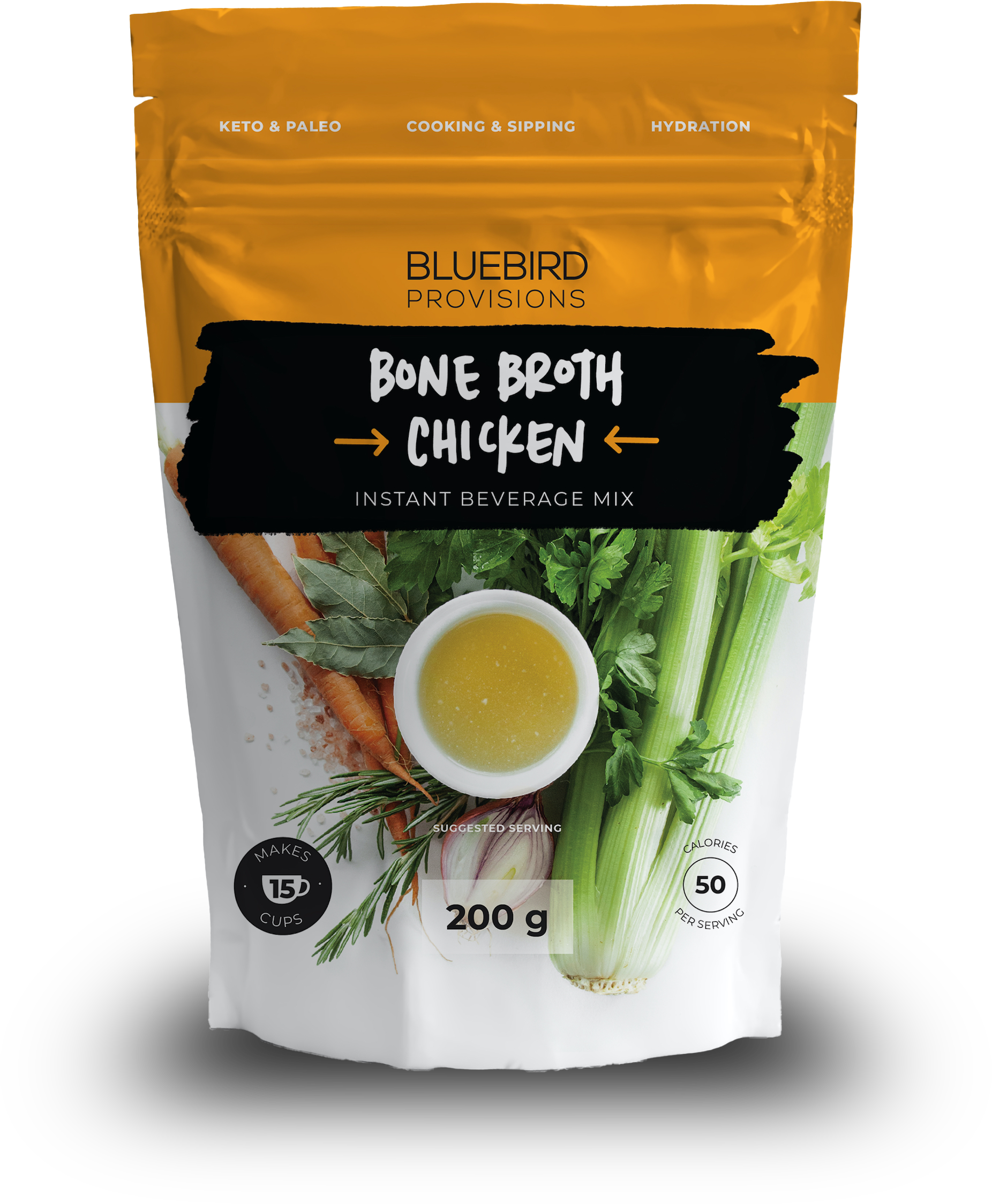
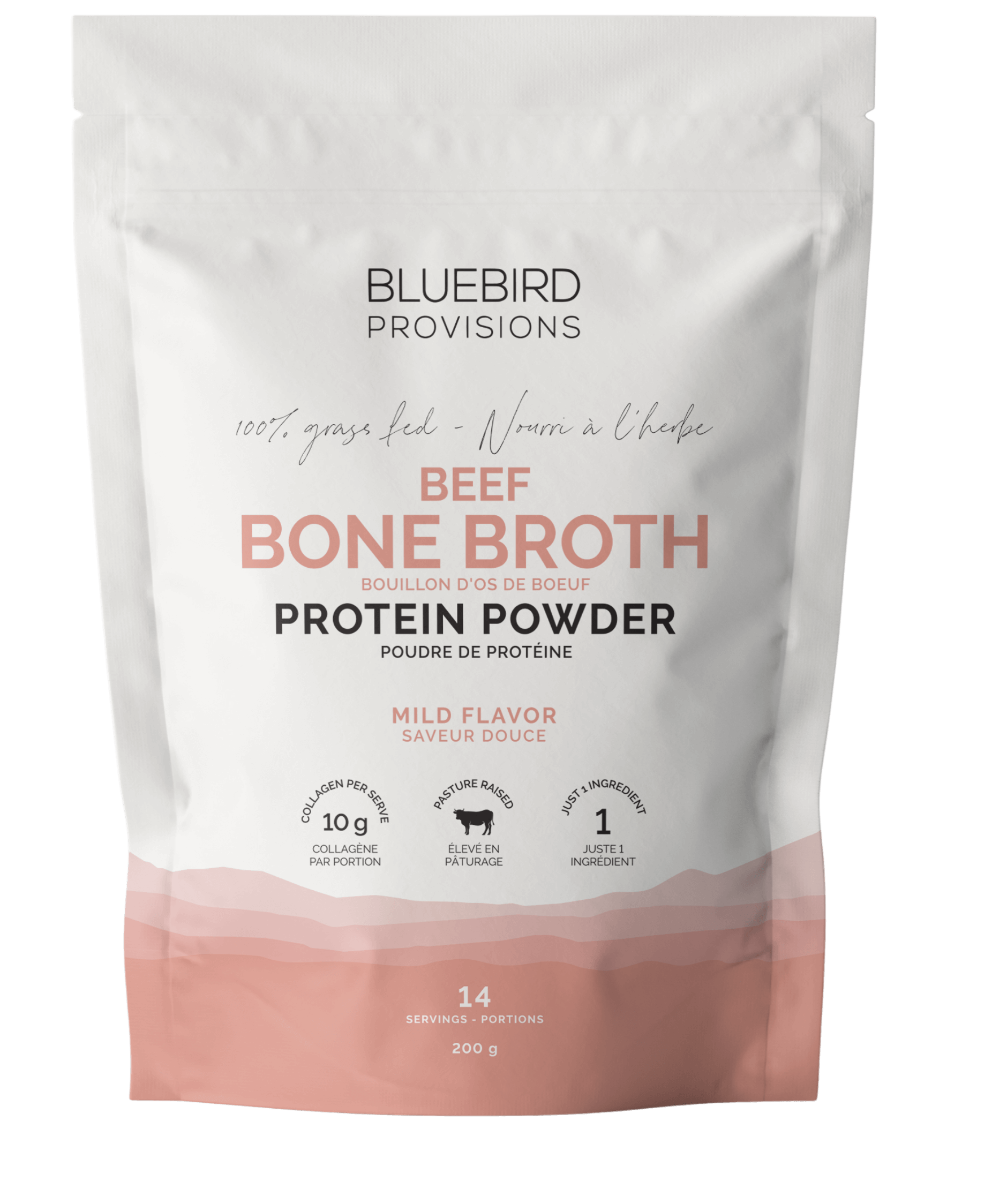
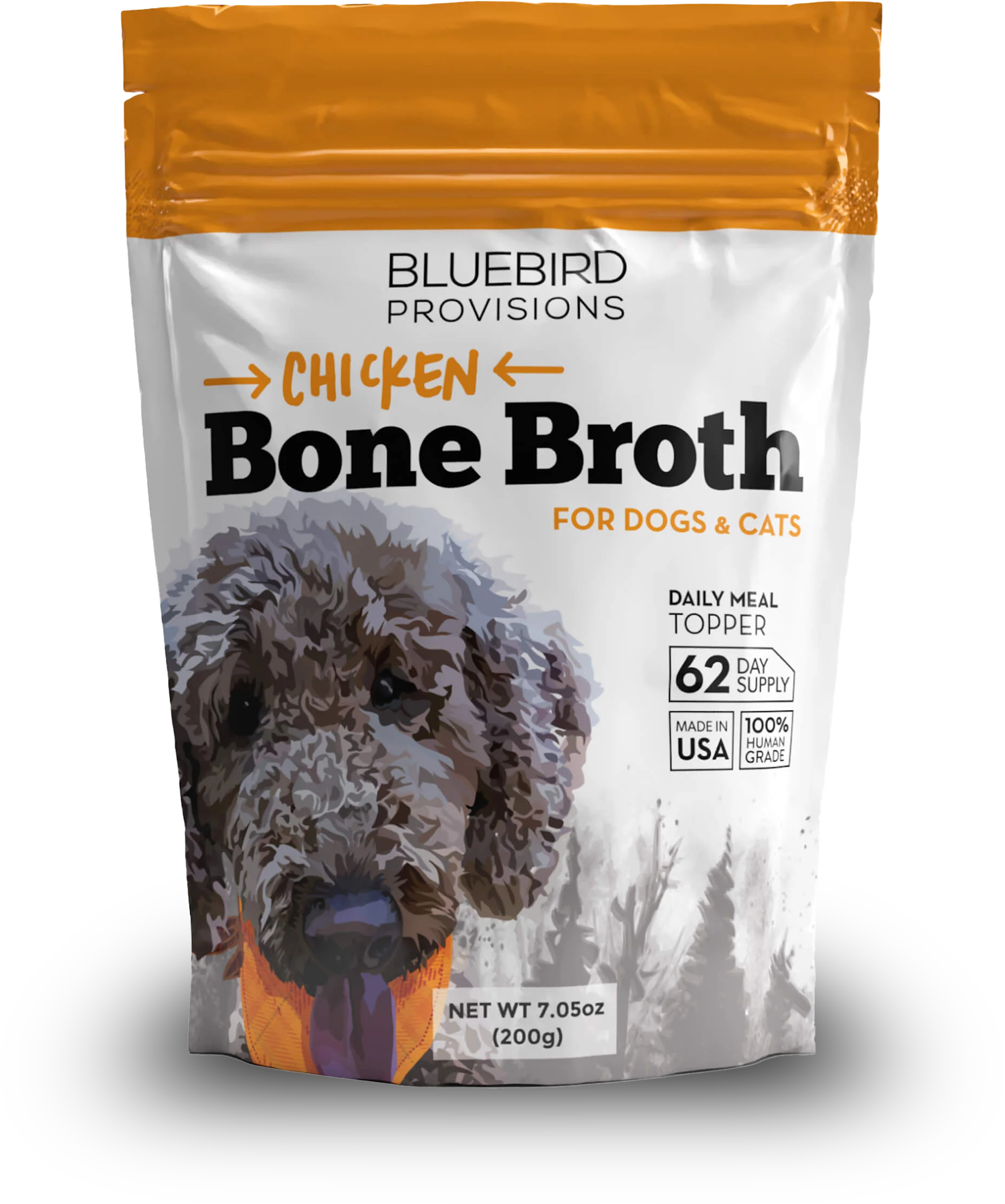
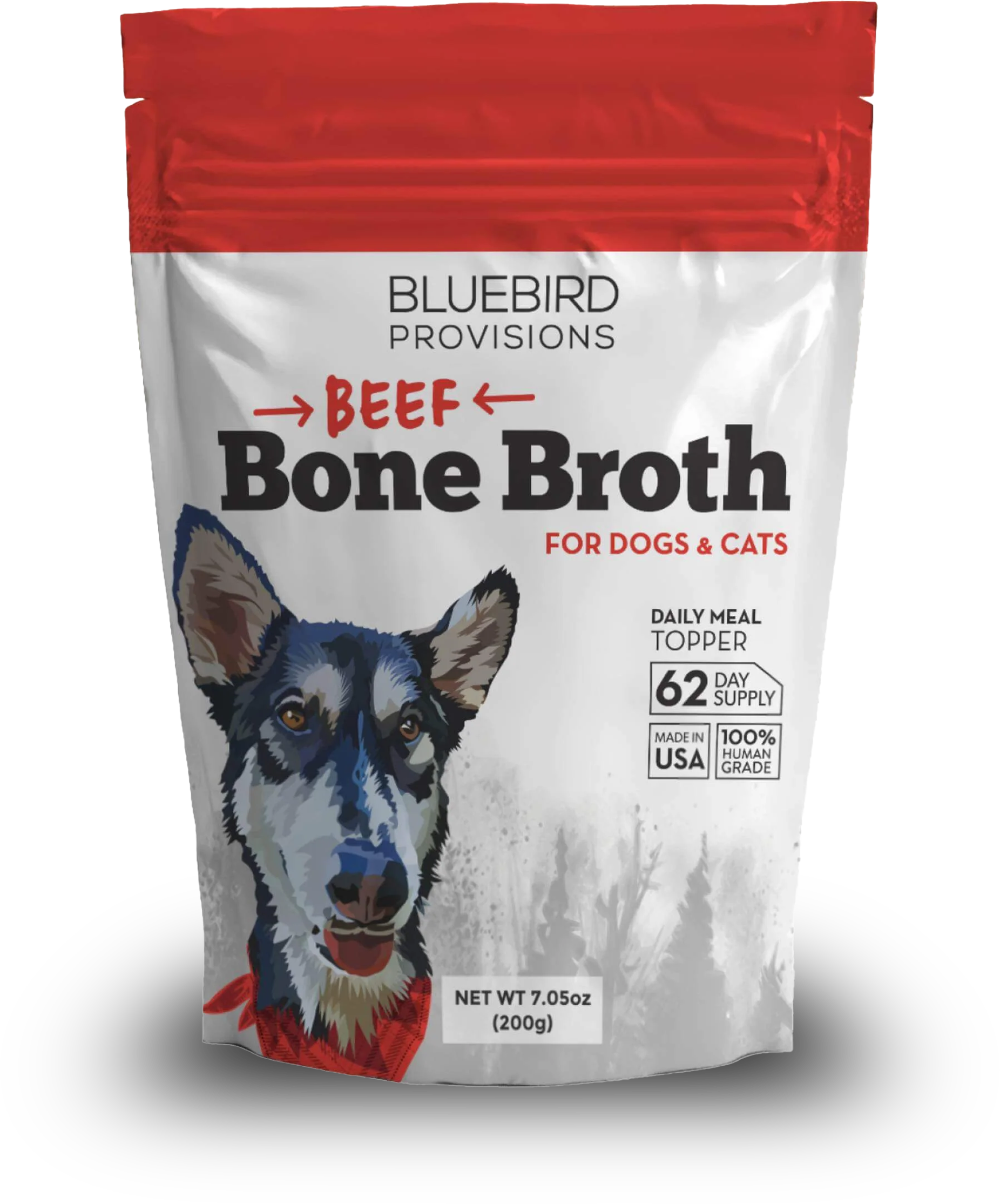

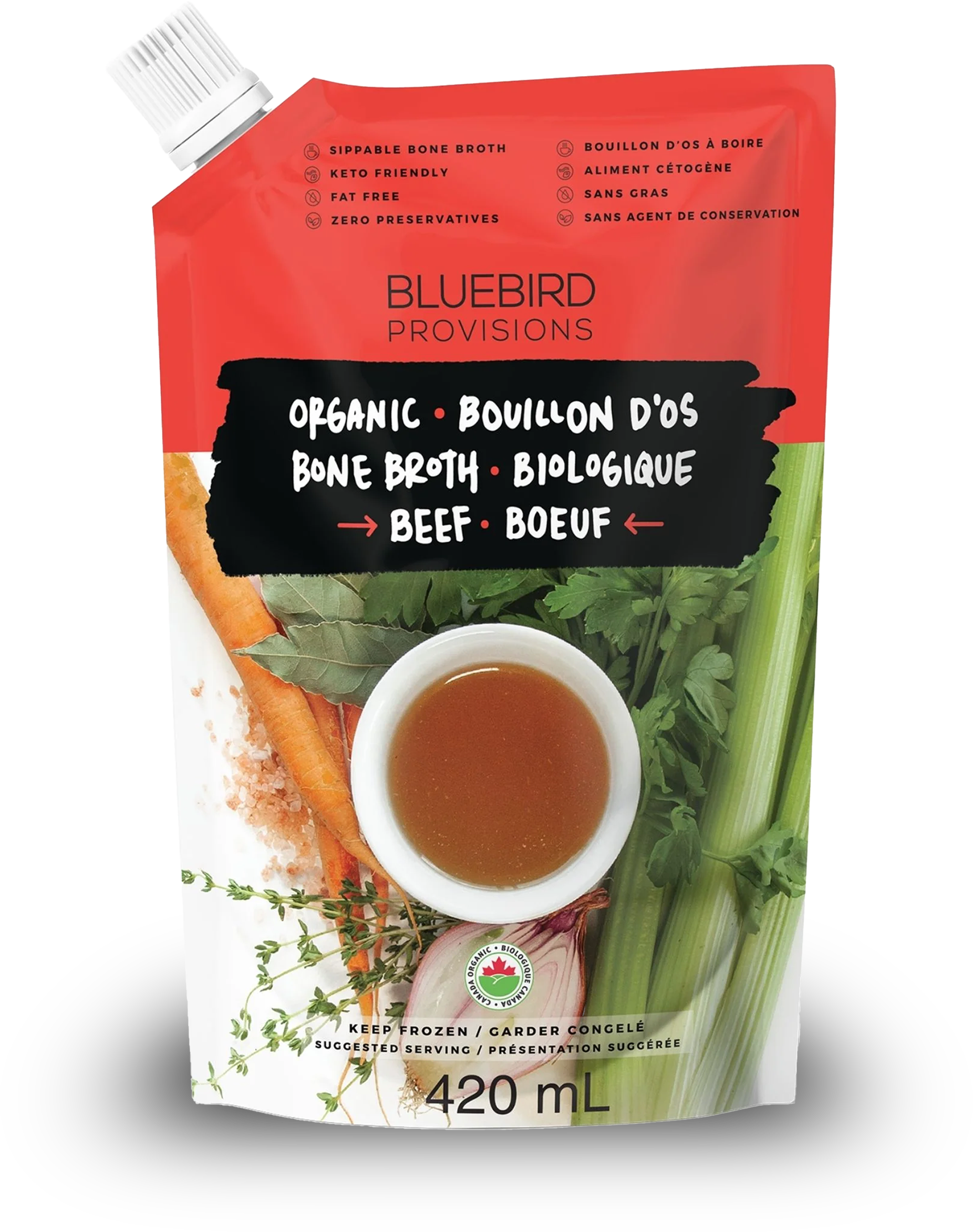


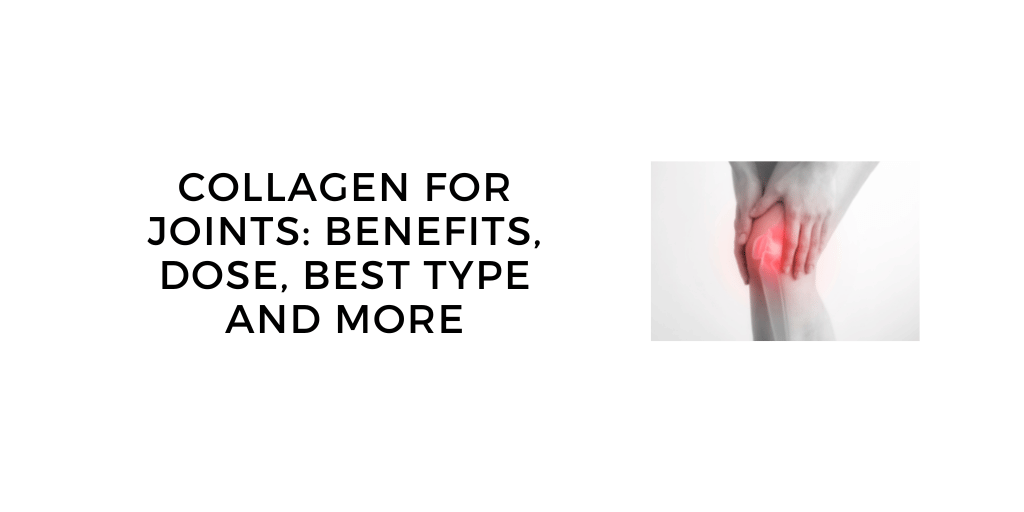
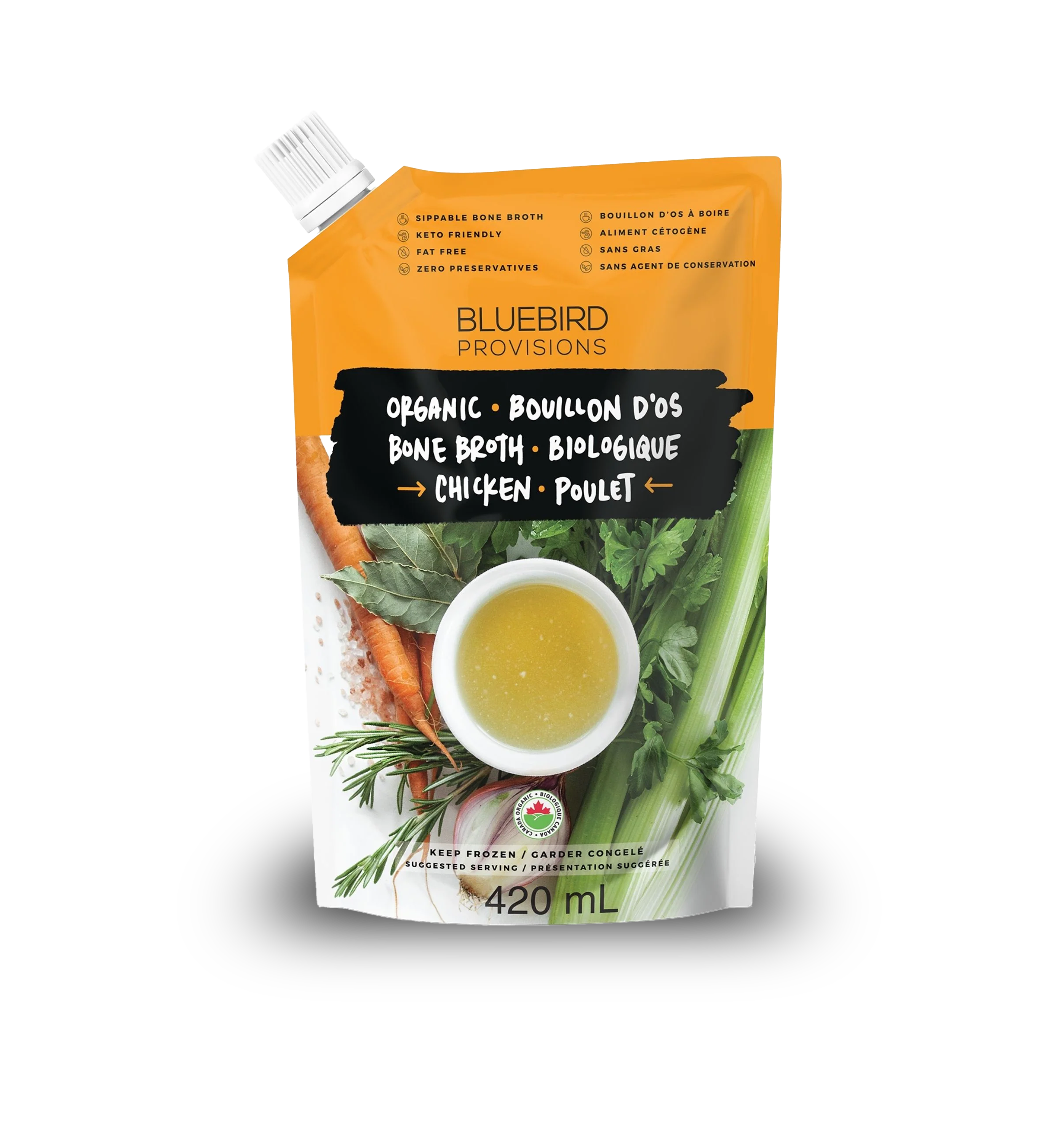
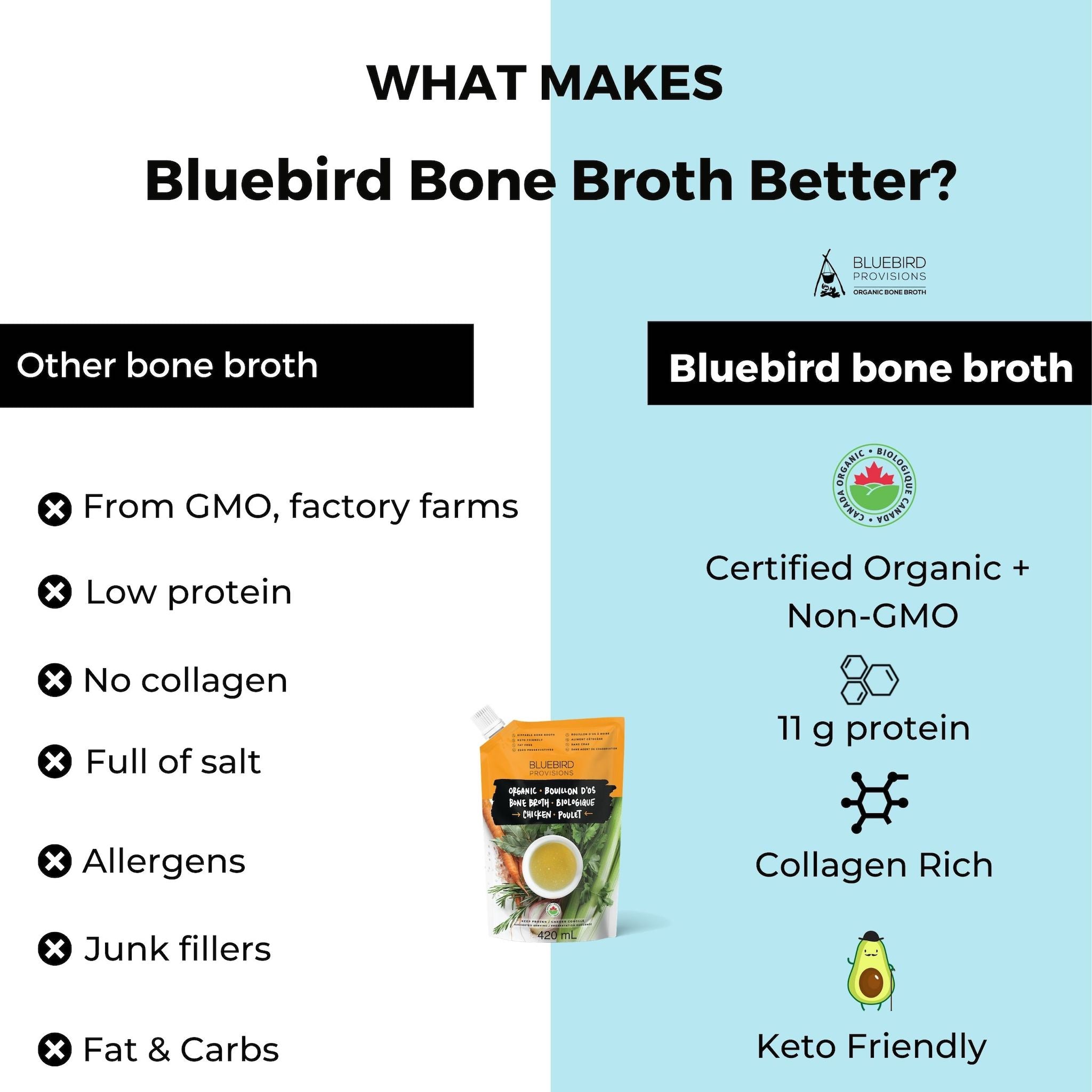
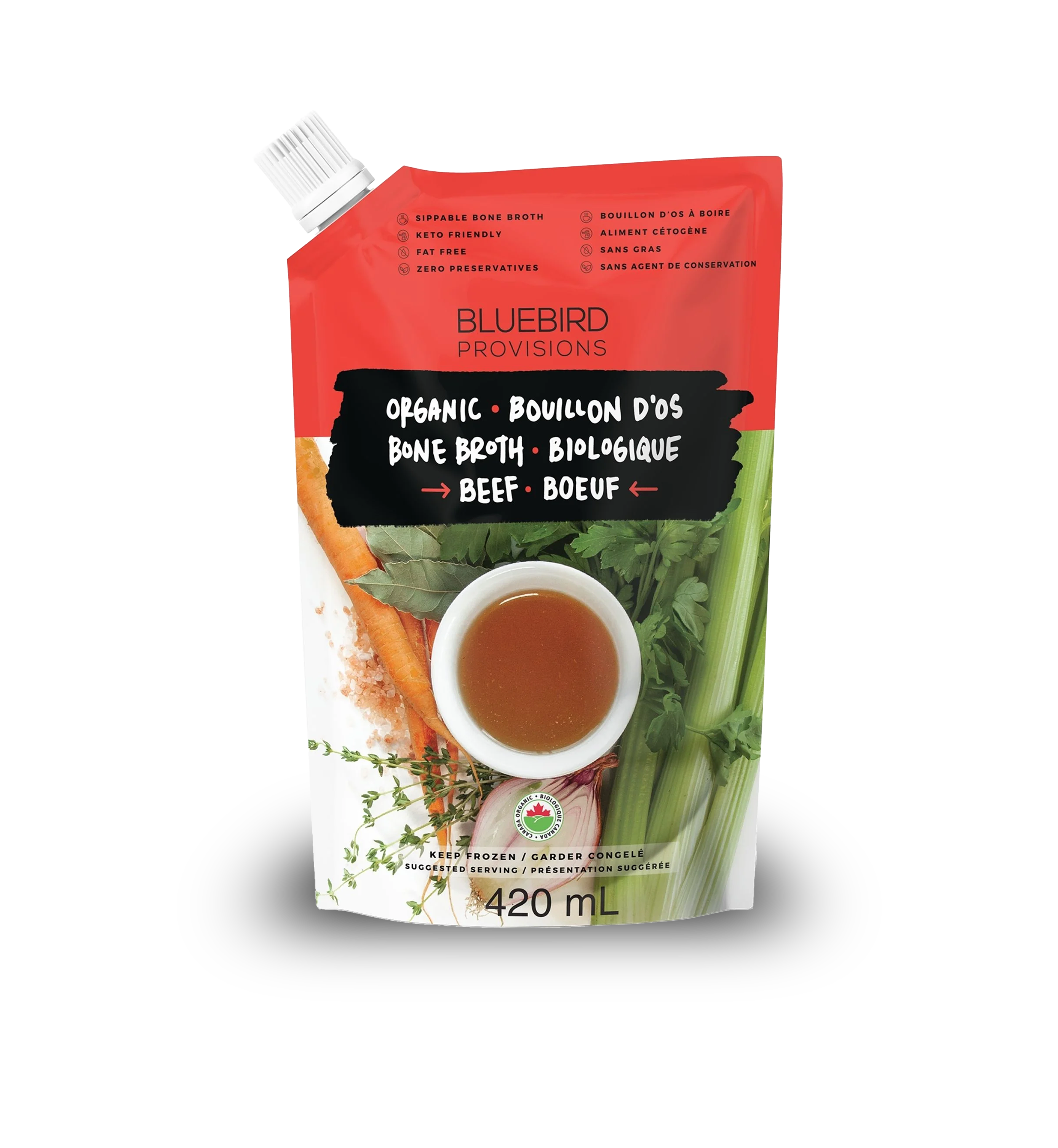
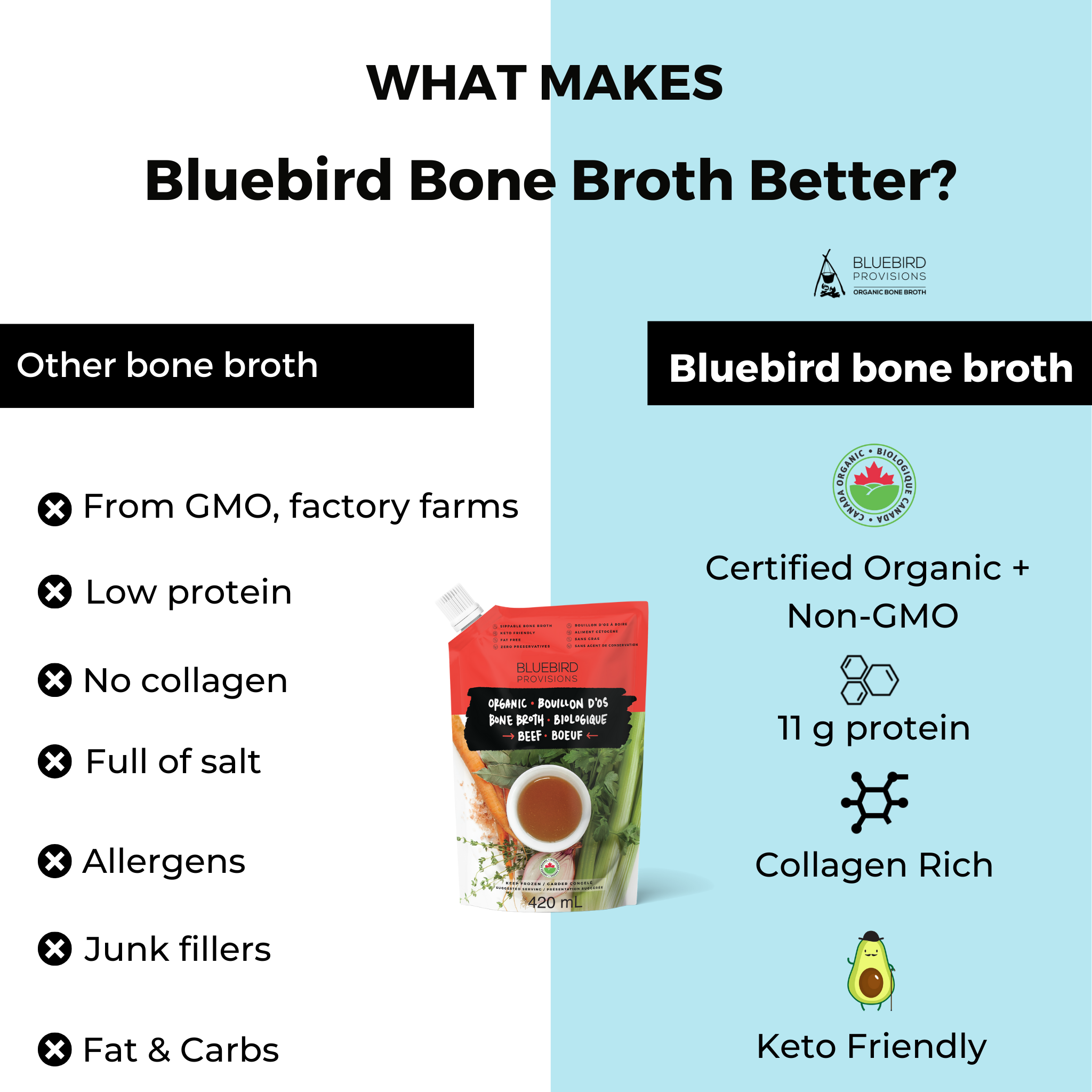
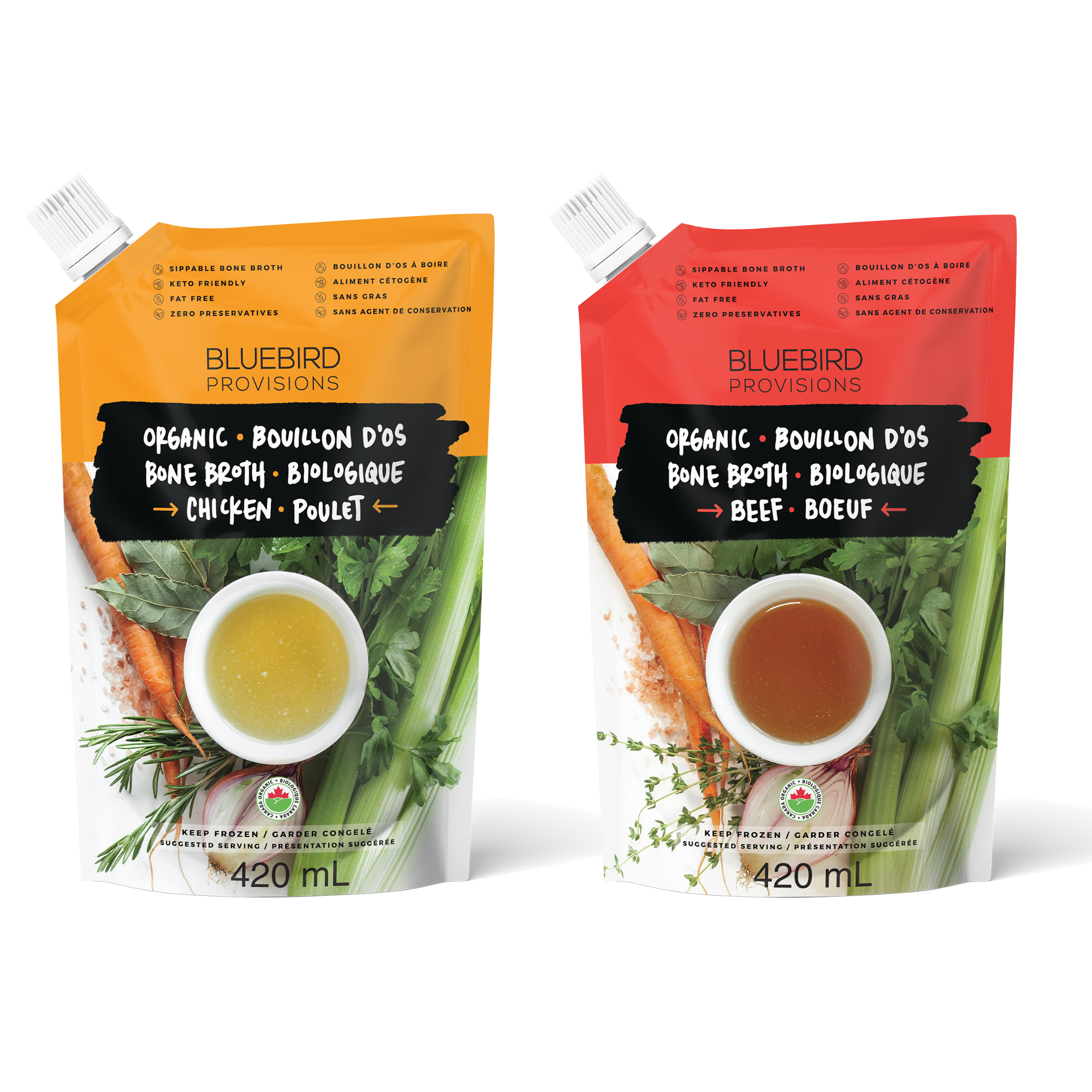

Leave a comment
This site is protected by hCaptcha and the hCaptcha Privacy Policy and Terms of Service apply.